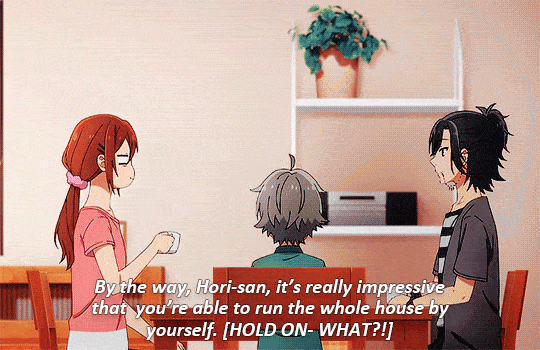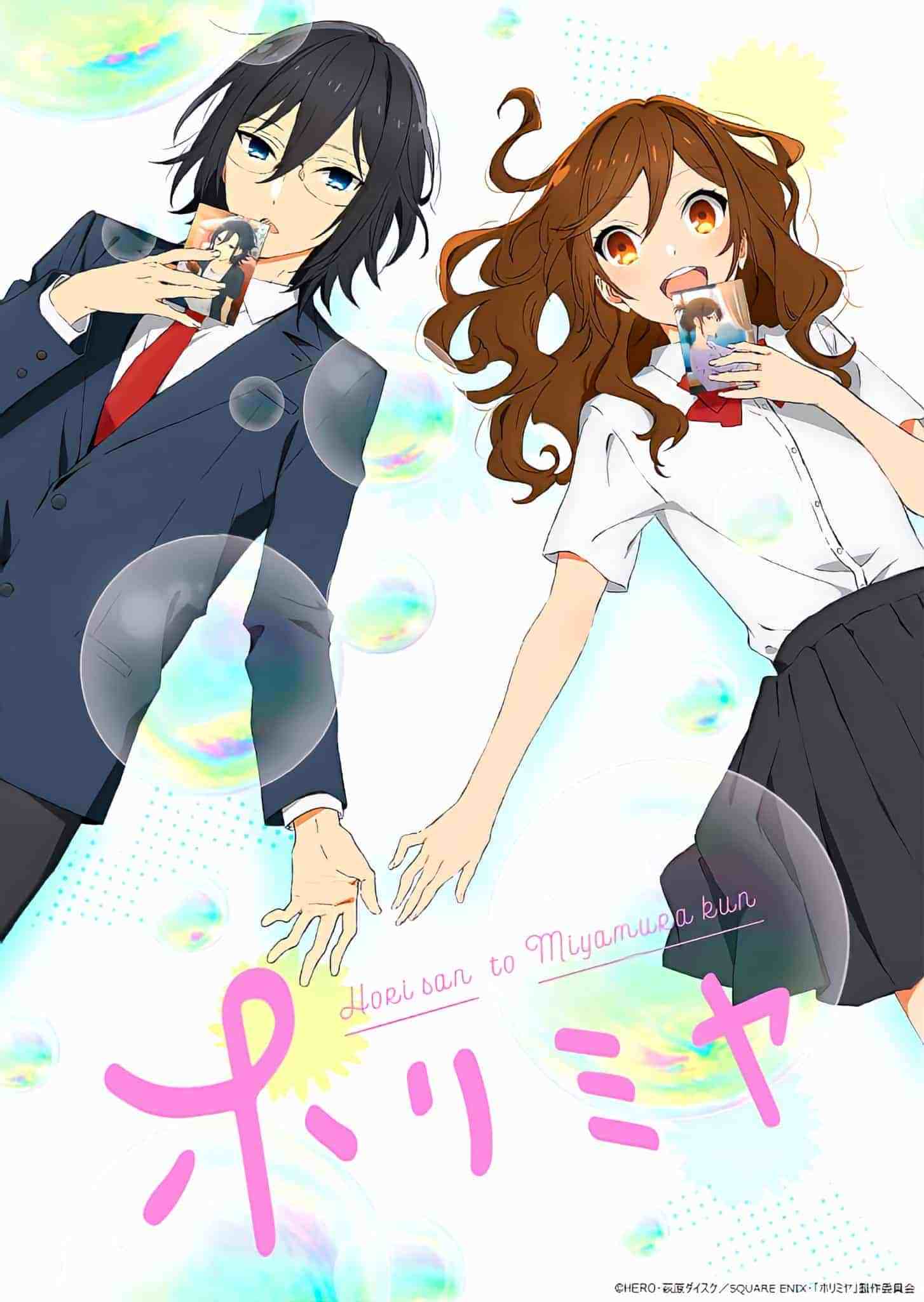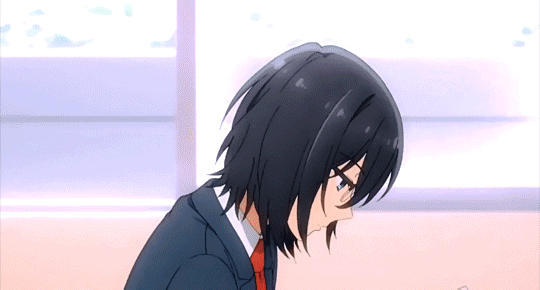Whenever a new anime season starts, I research the upcoming series and write a post about what shows I plan to focus on. Invariably, I end up finding great anime that I didn’t have on my list originally, meaning I end up having to follow even more shows than I intended. One gem I discovered is Horimiya: Hori-san to Miyamura-kun, a charming school romance anime about a girl named Hori and a boy named Miyamura.

Horimura is a Charming Romance Anime That You Will Love
Hori is a normal high school girl, who is a little more obsessed with looking after her younger brother and getting a bargain on eggs at the grocery store than going to karaoke with her friends after school. Miyamura is a high school boy seen as dark and anti-social by most of the class, but he’s got a secret side to himself: he’s super handsome and fashionable when outside class, even sporting two things that are forbidden in Japan’s strict school life, ear piercings and tattoos. When Hori and Miyamura meet outside of class one day, they learn about each other’s secret lives and find themselves drawn together.

A New Genre of School Drama Anime?
In the same way that the “cute girls doing cute things” evolved into sub-genres like “cute girls find a new hobby,” Horimiya seems to be part of a new genre of school drama exploring characters who feel ostracized by their classmates for one reason or another. In a way that’s similar to Jaku Chara Tomozaki-kun or the fascinating journey Ishigami-kun goes on in season 2 of Kaguya-sama, Horimiya focuses on the character of Miyamura, who felt excluded from groups in elementary school because he was viewed as a dark and depressing boy. One day he takes a safety pin and pierces his ear, and slowly begins building a new secret identity.
This was interesting to see unfold because my daughter grew up in a unique situation, being haafu, part of America and Japan. In the U.S. it’s quite common for girls to get their ears pierced at a young age, and my daughter had hers from the age of four or so. Wearing piasu (pierced earrings) in Japan at that age is unthinkable, and everywhere my daughter went women would scream kyaa! at how cute a young girl wearing pierced earrings looked. What’s more, when my daughter attended high school in Australia, she thought nothing of getting some small tattoos, which is another thing that’s not done at that age here in Japan.

After I got a few episodes into Horimiya, I groaned, knowing that the show was so good, I had to show it to Mrs. J-List, meaning that I had to watch it over from the beginning with her. As I suspected, the show passed the “Mrs. J-List test” with flying colors, and now she’s nagging me to make sure I get each episode for her.
Let’s Learn Japanese Language and Culture Through the Horimiya Anime!
In one scene, Hori realizes she doesn’t know Miyamura’s first (given) name, and obsesses about how to find it out without asking him directly, which she’s embarrassed to do after so long. Here are some of the “levels” of how names work in Japanese:
- Family name only (Miyamura, Ishikawa): pretty much the default in school settings in Japan.
- Family name or first name with “-san” added: being extra polite, but in the context of classmates or friends, might be seen as creating unnecessary social barriers.
- Family name + -kun: implies closeness. Ishikawa becomes friends with Miyamura when he realizes Miyamura is the only one in class who calls him “Ishikawa-kun.”
- First name + -kun: implies an even closer relationship, while still keeping some “social distance” — using the pre-2020 meaning of that word — for politeness.
- Using the first name only: implies the closest relationship of all. When Hori finally learns Miyamura’s first name and speaks it aloud, we know their relationship has entered a new phase.
In American English we just use everyone’s first name as the default, even if we’ve just met them. This caused confusion when I went with my daughter and some J-List staffers to San Diego for the summer anime convention seasons. She took me aside and asked why her grandmother was calling the J-List staffers by their first names, as if they’d been close friends for years. I had to explain that this was normal for English.
Don’t you hate it when you’re trying to compliment your crush’s hands, and end up confessing your love to him?
I hope everyone is watching the #Horimiya anime? It’s adorable af! pic.twitter.com/z9RI398D9U
— Peter Payne (@JListPeter) January 27, 2021
Another aspect of the Japanese language is the way subjects and objects are left off of sentences because the meaning is generally clear from the context. This situation is perfect for romantic anime plots, allowing for set-ups like a character saying “I love…” and having the other party assume the rest. This is how Hori can find herself complimenting how nice Miyamura’s hands are… or is she confessing her undying love to him?

Thanks for reading this blog post about the adorable Horimiya anime. Got any anime series you want us to cover here? Tell us below, or reply to us on Twitter!















